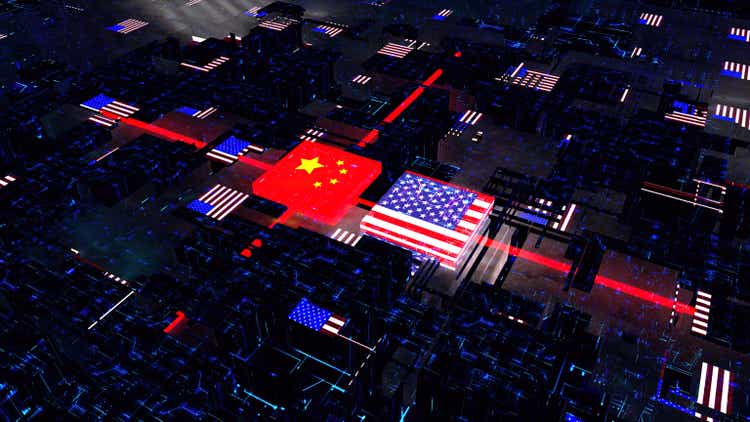
Japan and the Netherlands set to join U.S. in chip war against China
['chip', 'advanced', 'U.S.', 'semiconductor', 'China']
A war over silicon is brewing between the world&'s two largest economies as the U.S. looks to isolate China from the most sensitive of technologies. Read more here.
Japan and the Netherlands set to join U.S. in chip war against China
A war over silicon is brewing between the world's two largest economies as the U.S. looks to isolate China from one of the most important technologies of the future. This past summer saw the passing of the CHIPS ACT, which allowed the federal government to pour billions of dollars into the semiconductor sector to "Lead the world in future industries and protect national security." The Biden administration followed up on the measures with serious export controls to prevent U.S. firms - or any global company that uses their tech - from selling chip designs, software and equipment to Beijing. Backdrop: Chips are used in just about everything today, making the modern economy possible, but the bigger concerns here are those used in sensitive military technologies. As China grows its influence, the country has been making strides towards producing its own advanced chips, and has even been surprising the U.S. with its latest military developments. Until now, the U.S. has outsourced the manufacturing of its most advanced chips to Taiwan, which has become increasingly threatened by its forceful neighbor China. Go deeper: The U.S. is now trying to protect the rest of the advanced chip supply chain by forging an alliance that will curtail China's ability to produce its own domestic silicon. Talks are set to conclude today with Japan, the biggest supplier of chip wafer, metals and chemicals, as well as the Netherlands, known for its deep ultraviolet lithography machines used to carve advanced chips.